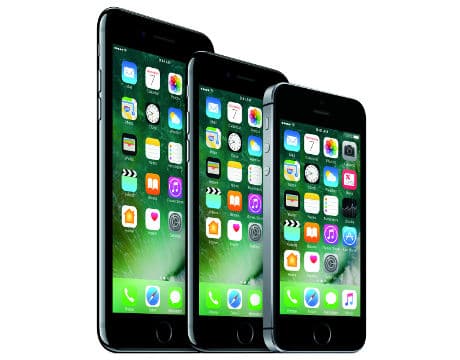
The group of Australian banks arguing for the right to collectively negotiate with Apple over the introduction of Apple Pay in the country have dropped their request to jointly arrange how to “pass-through” additional fees Apple imposes on its mobile payment service, and will now focus solely on gaining access to the NFC functionality within the iPhone.
In their latest submission to the the Australian Competition and Consumer Commission (ACCC), the banks have responded to concerns raised by the ACCC’s draft determination that ruled against them in August 2016, and have “proposed to remove from consideration items” that the competition regulator considered “may lead to a public detriment”.
The banks also dismiss Apple’s theory that they are using fees on Apple Pay transactions as a “trojan horse” to discourage the use of the service as “fantasy”.
“The applicants have addressed these concerns by removing collective negotiation on the potential to pass-through the additional fees Apple wishes to impose on the payment system (ie the requested collective negotiation will be in relation to NFC access alone) and limiting the authorisation term to 18 months, half the original term sought,” the banks say.
“Open NFC access would enable the delivery of substantial public benefits to Australian consumers, not just in payments, but across retailing, loyalty programs, building or member lounge security, and other NFC use cases.”
‘Reasonable reciprocity’
The Australian Retailers Association (ARA) — which represents 5,000 independent and national retailers — joined Bendigo and Adelaide Bank, Commonwealth Bank of Australia, National Australia Bank and Westpac Bank in their Apple Pay battle last week. Apple Pay boss Jennifer Bailey spoke out about the feud, claiming the banks risk “being left behind” by not supporting the service.
“All the banks are asking for is for the NFC to be opened up, or the antenna to be opened up on the Apple phones,” Bendigo and Adelaide bank’s managing director Mike Hirst told investors during the bank’s 2017 interim results earnings call.
“Given that Apple can’t actually make a payment without using the banks’ infrastructure, it seems to me a reasonable piece of reciprocity for Apple to actually open up their infrastructure to the banks, in exchange for the banks opening up the infrastructure for them. The banks have invested heavily in that infrastructure over a period of time.
“The NFC is important to more than just banking, too. It really is a bit like a payments platform, a piece of infrastructure for the whole of the economy that should be made available, and I don’t understand why they’re not doing that. I hear those things around security and other things, but I’m pretty sure bank security is better than mobile phone security.”
“The applicants are ready, willing and able to participate in Apple Pay, alongside being able to offer their customers their own mobile wallet providers,” says spokesperson for the banks Lance Blockley. “The applicants want to put up their digital offerings head to head with Apple Pay, and let the market and individual consumers decide which best suits their needs.
“The applicants expect that Apple Pay would be offered to their customers alongside open access to the NFC function — any delay or frustration will be as a result of Apple refusing to negotiate. Apple is not a bank or a credit card scheme — nor are the applicants manufacturers of mobile phones. Both parties need each other to bring strong mobile payment offerings to the market.”
Timeline
- 10 February 2017: ING Direct and Macquarie Bank sign up for Apple Pay
- 10 February 2017: Jennifer Bailey says she believes Australians will be “happy to switch banks” in order to use Apple Pay.
- 10 February 2017: Australia’s retailers join the banks in their battle with Apple Pay
- 6 February 2017: Apple accuses Australian banks of Apple Pay transaction fee ‘trojan horse’
- 29 November 2016: The ACCC denies authorisation to Australian banks over Apple Pay negotiation in a draft determination
- 17 October 2016: In an extensive response to the ACCC, the banks criticised Apple’s decision to restrict access to the NFC within its handsets, calling it “completely baseless”
- 31 August 2016: Apple insisted that opening up access to the NFC technology within its handsets was not open to negotiation with any bank
- 30 August 2016: Supermarket giant Coles put its backing behind the banks with its own submission to the ACCC
- 22 August 2016: The ACCC ruled that it would not grant the banks interim authorization to collectively negotiate
- 10 August 2016: Apple spoke out for the first time about the banks’ submission, saying it was made up of “factual and legal misstatements”
- 27 July 2016: Bendigo and Adelaide Bank, Commonwealth Bank of Australia, National Australia Bank and Westpac Bank submitted their request for negotiation to the ACCC
Next: Visit the NFCW Expo to find new suppliers and solutions
If banks and merchants were to engage in such an anti-competitive conspiracy here, we would put them under the jail.
Consumer convenience and security are the big losers here.
Sorry banks. No datamining for you.